The CHS is pleased to announce the 2020-21 Fellows in Hellenic Studies. The fellowship program encourages research of the highest quality on topics related to ancient Greece. The program offers residential and non-residential options, and seeks to support collaborative and coordinating projects.
 Milena Anfosso earned a Ph.D. (2014–2019) summa cum laude in Ancient Greek Linguistics from Sorbonne University, Paris, France. She holds an M.A. (2011–2013) and a B.A. (2007–2011) in Classics, both summa cum laude, from the University of Turin, Italy. She spent three years (2016–2019) as a Visiting Researcher at the University of California, Los Angeles, Program in Indo-European Studies thanks to (among others) a prestigious grant from Marcel Bleustein-Blanchet’s Foundation (“Prix de la Vocation”, 2015, Publicis Group, Paris). Milena has published several articles in English, French, and Italian, focusing on the sociolinguistic relationships between the Greeks, the Phrygians, and the other Anatolian populations in Ancient Anatolia, spanning from the 9th century BCE to the 3rd century CE. In addition to her scholarly research, she is interested in translation and creative writing. While at the Center for Hellenic Studies, Milena will work on a monograph on the linguistic portrayal of the exotic characters in Timotheus of Miletus’ Persae, an expansion of chapter 2 of her doctoral dissertation.
Milena Anfosso earned a Ph.D. (2014–2019) summa cum laude in Ancient Greek Linguistics from Sorbonne University, Paris, France. She holds an M.A. (2011–2013) and a B.A. (2007–2011) in Classics, both summa cum laude, from the University of Turin, Italy. She spent three years (2016–2019) as a Visiting Researcher at the University of California, Los Angeles, Program in Indo-European Studies thanks to (among others) a prestigious grant from Marcel Bleustein-Blanchet’s Foundation (“Prix de la Vocation”, 2015, Publicis Group, Paris). Milena has published several articles in English, French, and Italian, focusing on the sociolinguistic relationships between the Greeks, the Phrygians, and the other Anatolian populations in Ancient Anatolia, spanning from the 9th century BCE to the 3rd century CE. In addition to her scholarly research, she is interested in translation and creative writing. While at the Center for Hellenic Studies, Milena will work on a monograph on the linguistic portrayal of the exotic characters in Timotheus of Miletus’ Persae, an expansion of chapter 2 of her doctoral dissertation.
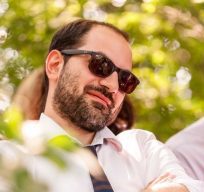 Alessandro Buccheri works on archaic and classical Greek poetry and on ancient botany, in dialogue with anthropology and social sciences. His research foci are: (1) the workings of metaphor in different kinds of textual compositions and intellectual milieus, as well as in its role as a conceptual mechanism shaping cultures at large; (2) nature, the vegetal kingdom, and its place in the cultural and material environment of ancient societies.
Alessandro Buccheri works on archaic and classical Greek poetry and on ancient botany, in dialogue with anthropology and social sciences. His research foci are: (1) the workings of metaphor in different kinds of textual compositions and intellectual milieus, as well as in its role as a conceptual mechanism shaping cultures at large; (2) nature, the vegetal kingdom, and its place in the cultural and material environment of ancient societies.
Alessandro was trained in Classical Philology and in Historical Anthropology at the University of Siena and at the École des Hautes Études en Sciences Sociales in Paris (PhD 2017). He is currently revising his dissertation for publication under the title “Penser les hommes à travers les plantes. Métaphores botaniques dans la poésie grecque d’Homère aux tragiques” (Thinking Men Through Plants. Botanical Metaphors in Archaic and Classical Greek Poetry). Alessandro has been a post-doctoral fellow of the excellence cluster HASTEC (History and Anthropology of Knowledge, Technologies, and Beliefs) in Paris (2018/19), and a guest researcher at the ERC-funded project “Mapping Ancient Polytheisms” at the University of Toulouse (fall semester 2019). While at CHS, he will explore how botanical knowledge might have circulated from archaic and classical poetical traditions to the botanical writings of Theophrastus.
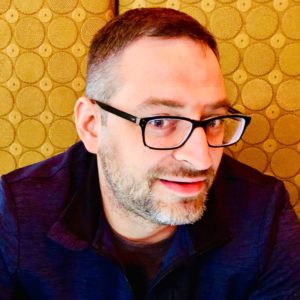 Patrick J. Burns is a Postdoctoral Fellow at the Quantitative Criticism Lab (UT-Austin) working on computational literary criticism. He is also a Research Associate at NYU’s Institute for the Study of the Ancient World and contributes to the Classical Language Toolkit, an open-source project offering text-analysis support for historical languages.
Patrick J. Burns is a Postdoctoral Fellow at the Quantitative Criticism Lab (UT-Austin) working on computational literary criticism. He is also a Research Associate at NYU’s Institute for the Study of the Ancient World and contributes to the Classical Language Toolkit, an open-source project offering text-analysis support for historical languages.
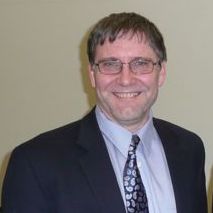 Gregory Crane is a professor in the Classical Studies Department at Tufts University, an adjunct professor in the Department of Computer Science, and Editor-in-Chief of the Perseus Project. As an Alexander von Humboldt Professor, he initiated the Open Greek and Latin Project (OGLP), which aims to represent every source text produced in Classical Greek or Latin from antiquity through the present. He has a long-standing interest in the relationship between the humanities and rapidly developing digital technology.
Gregory Crane is a professor in the Classical Studies Department at Tufts University, an adjunct professor in the Department of Computer Science, and Editor-in-Chief of the Perseus Project. As an Alexander von Humboldt Professor, he initiated the Open Greek and Latin Project (OGLP), which aims to represent every source text produced in Classical Greek or Latin from antiquity through the present. He has a long-standing interest in the relationship between the humanities and rapidly developing digital technology.
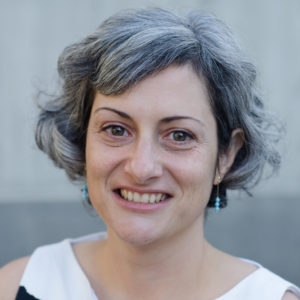 Denise Demetriou is the Gerry and Jeannie Ranglas Chair in Ancient Greek History and Associate Professor of History at the University of California — San Diego, where she has also served as the Director of UCSD’s Center for Hellenic Studies. She received her Ph.D. in Classics from The Johns Hopkins University in 2005. Her research interests focus on archaic and classical Greek history, with a particular interest in exploring different kinds of cross cultural interactions within the Greek world and between Greeks and non-Greeks. Her book, Negotiating Identity in the Ancient Mediterranean: The Archaic and Classical Greek Multiethnic Emporia (Cambridge 2012), studied the construction of ethnic, civic, religious, and social identities in the ancient Mediterranean from the seventh to the fourth centuries BCE. In addition to her book, she has co-edited (with Amalia Avramidou) Approaching the Ancient Artifact: Representation, Narrative, and Function (De Gruyter 2014). She is currently working on her second book, Phoenicians Among Others, which explores how migration and mobility transformed the ancient Mediterranean in the fourth century BCE by looking at Phoenician-speaking immigrants living primarily in the Greek world but also in Egypt, Carthage, and Western Asia.
Denise Demetriou is the Gerry and Jeannie Ranglas Chair in Ancient Greek History and Associate Professor of History at the University of California — San Diego, where she has also served as the Director of UCSD’s Center for Hellenic Studies. She received her Ph.D. in Classics from The Johns Hopkins University in 2005. Her research interests focus on archaic and classical Greek history, with a particular interest in exploring different kinds of cross cultural interactions within the Greek world and between Greeks and non-Greeks. Her book, Negotiating Identity in the Ancient Mediterranean: The Archaic and Classical Greek Multiethnic Emporia (Cambridge 2012), studied the construction of ethnic, civic, religious, and social identities in the ancient Mediterranean from the seventh to the fourth centuries BCE. In addition to her book, she has co-edited (with Amalia Avramidou) Approaching the Ancient Artifact: Representation, Narrative, and Function (De Gruyter 2014). She is currently working on her second book, Phoenicians Among Others, which explores how migration and mobility transformed the ancient Mediterranean in the fourth century BCE by looking at Phoenician-speaking immigrants living primarily in the Greek world but also in Egypt, Carthage, and Western Asia.
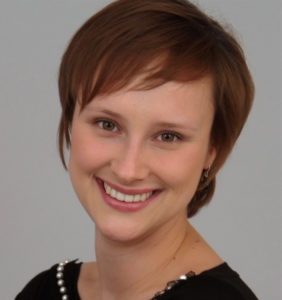 Marieke Dhont is a British Academy Postdoctoral Fellow at the University of Cambridge. She obtained master’s degrees in Classics and in Cultural Studies and a doctorate in Religious Studies from KU Leuven (Belgium). She specializes in Hellenistic Judaism and Jewish multilingualism in antiquity, focusing in particular on Jewish literature in Greek. Her doctoral research, published as Style and Context of Old Greek Job (Brill 2018), deals with the Septuagint, the Greek translation of the Hebrew Bible, and the ways we can understand the style and translation technique of the Septuagint within the literary context of Jews engaging in Greek. Marieke has co-edited volumes on The Septuagint within the History of Greek (Journal for the Study of Judaism) and Textual Plurality Beyond the Biblical Text (Revue de Qumrân) and is currently co-editing the T&T Clark Companion to Hellenistic Jewish Literature in Greek. While at CHS, she will work on her second monograph which focuses on language and cultural identity in extrabiblical Jewish literature in Greek from the third to the first century BCE.
Marieke Dhont is a British Academy Postdoctoral Fellow at the University of Cambridge. She obtained master’s degrees in Classics and in Cultural Studies and a doctorate in Religious Studies from KU Leuven (Belgium). She specializes in Hellenistic Judaism and Jewish multilingualism in antiquity, focusing in particular on Jewish literature in Greek. Her doctoral research, published as Style and Context of Old Greek Job (Brill 2018), deals with the Septuagint, the Greek translation of the Hebrew Bible, and the ways we can understand the style and translation technique of the Septuagint within the literary context of Jews engaging in Greek. Marieke has co-edited volumes on The Septuagint within the History of Greek (Journal for the Study of Judaism) and Textual Plurality Beyond the Biblical Text (Revue de Qumrân) and is currently co-editing the T&T Clark Companion to Hellenistic Jewish Literature in Greek. While at CHS, she will work on her second monograph which focuses on language and cultural identity in extrabiblical Jewish literature in Greek from the third to the first century BCE.
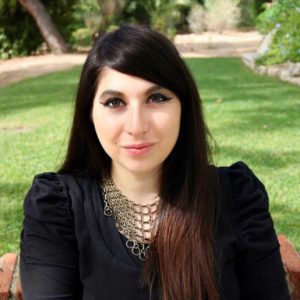 Aimee M. Genova specializes in the disciplinary history of Cretan archaeology and holds an M.A. in Anthropology from Northern Illinois University and both an M.A. and Ph.D. from the University of Chicago’s Department of History. In addition to her past tenure as the M. Alison Frantz Fellow at the American School of Classical Studies at Athens, she has extensive excavation experience in the Peloponnese and in Salemi, Sicily. Trained as an anthropologist and ancient historian, her broader interests pertain to the intellectual history and process of archaeological knowledge production. While at CHS, she will pursue her project In Times of War and Crisis: Regional Identities and Greek Archaeology, which offers a social-historical analysis of Greek archaeology that integrates the identity politics of Ottoman Macedonia and Crete and the broader, transnational narratives of Greek resistance.
Aimee M. Genova specializes in the disciplinary history of Cretan archaeology and holds an M.A. in Anthropology from Northern Illinois University and both an M.A. and Ph.D. from the University of Chicago’s Department of History. In addition to her past tenure as the M. Alison Frantz Fellow at the American School of Classical Studies at Athens, she has extensive excavation experience in the Peloponnese and in Salemi, Sicily. Trained as an anthropologist and ancient historian, her broader interests pertain to the intellectual history and process of archaeological knowledge production. While at CHS, she will pursue her project In Times of War and Crisis: Regional Identities and Greek Archaeology, which offers a social-historical analysis of Greek archaeology that integrates the identity politics of Ottoman Macedonia and Crete and the broader, transnational narratives of Greek resistance.
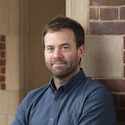 Dieter Gunkel is an Assistant Professor of Historical Linguistics at the University of Richmond. He received his BA from Middlebury College (2003) and PhD from UCLA’s Program in Indo-European Studies (2010), where he was a Diebold Fellow. He was an Akademischer Rat at the University of Munich (2010–2017) before moving to Richmond. He is especially interested in Greek and Vedic Sanskrit, and he occasionally indulges in speculation about other things, including the relationship between the poetic meter of Tocharian and Sanskrit. As a CHS fellow, he will be researching the Greek accentual system, especially circumflex accents on penultimate syllables and other effects of tonal ochlophobia.
Dieter Gunkel is an Assistant Professor of Historical Linguistics at the University of Richmond. He received his BA from Middlebury College (2003) and PhD from UCLA’s Program in Indo-European Studies (2010), where he was a Diebold Fellow. He was an Akademischer Rat at the University of Munich (2010–2017) before moving to Richmond. He is especially interested in Greek and Vedic Sanskrit, and he occasionally indulges in speculation about other things, including the relationship between the poetic meter of Tocharian and Sanskrit. As a CHS fellow, he will be researching the Greek accentual system, especially circumflex accents on penultimate syllables and other effects of tonal ochlophobia.
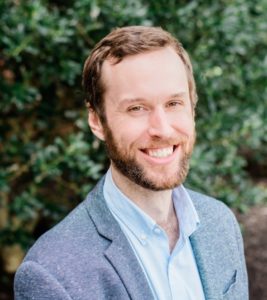 Ian Hensley will be an Assistant Professor of Philosophy at East Tennessee State University starting in the Fall of 2020. He earned his Ph.D. from Cornell University in 2016. His research focuses on natural philosophy in ancient Greece and Rome and its connections to contemporary philosophical problems in metaphysics and philosophy of mind. He has recently published several articles on the physics of the early Greek Stoics, which explain their theories of the physical elements, principles of nature, and cosmogony. During his fellowship at CHS, he will continue this project of reconstructing the Stoics’ explanations of the natural world. By analyzing how certain key terms are used by the second-hand sources for early Stoicism, he will propose solutions to several interpretive puzzles regarding the nature of the Stoics’ basic bodies.
Ian Hensley will be an Assistant Professor of Philosophy at East Tennessee State University starting in the Fall of 2020. He earned his Ph.D. from Cornell University in 2016. His research focuses on natural philosophy in ancient Greece and Rome and its connections to contemporary philosophical problems in metaphysics and philosophy of mind. He has recently published several articles on the physics of the early Greek Stoics, which explain their theories of the physical elements, principles of nature, and cosmogony. During his fellowship at CHS, he will continue this project of reconstructing the Stoics’ explanations of the natural world. By analyzing how certain key terms are used by the second-hand sources for early Stoicism, he will propose solutions to several interpretive puzzles regarding the nature of the Stoics’ basic bodies.
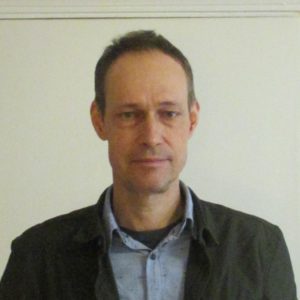 Mait Kõiv is associate professor of Ancient History at the University of Tartu, Estonia. He received his PhD in 2003 from the University of Tartu, with a dissertation on the traditions reflecting state formation in the Archaic Peloponnese. His research interests include the development of historical accounts based on oral traditions, including the retrospective construction of early chronologies by classical authors, and the comparative approach to socio-political development and state formation in the Early Iron Age and Archaic Greece. He has travelled widely in Greece and other Mediterranean countries to become familiar with the topographical setting of various emerging communities, which is essentially for his present project dedicated to the interplay of social hierarchies and egalitarian trends and dynamics of polity formation and power building in early Greece.
Mait Kõiv is associate professor of Ancient History at the University of Tartu, Estonia. He received his PhD in 2003 from the University of Tartu, with a dissertation on the traditions reflecting state formation in the Archaic Peloponnese. His research interests include the development of historical accounts based on oral traditions, including the retrospective construction of early chronologies by classical authors, and the comparative approach to socio-political development and state formation in the Early Iron Age and Archaic Greece. He has travelled widely in Greece and other Mediterranean countries to become familiar with the topographical setting of various emerging communities, which is essentially for his present project dedicated to the interplay of social hierarchies and egalitarian trends and dynamics of polity formation and power building in early Greece.
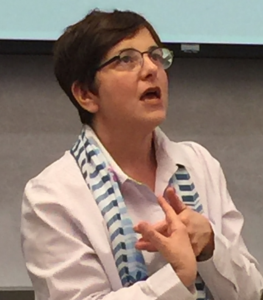 Lisa Maurizio is a Professor of the Classical and Medieval Studies Department at Bates College in Lewiston, Maine. Her main research interests are Greek divinatory practices, mythology, and women’s oral traditions. She is author of Classical Mythology in Context (Oxford 2015) and has co-edited (with Esther Eidinow) Women’s Ritual Competence in the Ancient Mediterranean (Routledge 2016) and Gender and Time in Narratives from the Ancient Mediterranean (Routledge 2020). Her project at CHS situates tales of child-killing monsters, such as Lamia or Mormo, in the social, religious, and medical practices surrounding childbirth and treats them as female expressions of maternal ambivalence.
Lisa Maurizio is a Professor of the Classical and Medieval Studies Department at Bates College in Lewiston, Maine. Her main research interests are Greek divinatory practices, mythology, and women’s oral traditions. She is author of Classical Mythology in Context (Oxford 2015) and has co-edited (with Esther Eidinow) Women’s Ritual Competence in the Ancient Mediterranean (Routledge 2016) and Gender and Time in Narratives from the Ancient Mediterranean (Routledge 2020). Her project at CHS situates tales of child-killing monsters, such as Lamia or Mormo, in the social, religious, and medical practices surrounding childbirth and treats them as female expressions of maternal ambivalence.
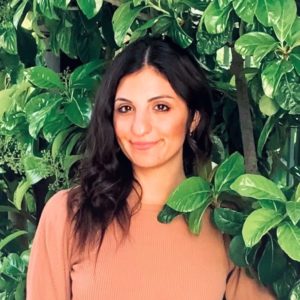 Despoina A. Potari received her PhD in Political Theory from the University of Oxford and her MSc (with distinction) from the London School of Economics & Political Science, specializing on Ancient Greek Political Philosophy and conceptual morphology. She has been teaching in the areas of Ancient Greek political thought, philosophy and ethics. Her research is principally interdisciplinary, exploring the intersections between Hellenic philosophy, epistemology and political theory. She is particularly interested in how the ancient tradition can be re-read and creatively interpreted in ways that make it relevant to contemporary philosophical and political debates. Her current research studies the – largely underexamined – history of ancient female scholarship, exploring how this can contribute to present feminist discussions concerning “gendered knowledge” and the ways in which philosophy has been and can be practiced “in the feminine”, thereby possibly broadening the scope of inclusion into “the philosophical”.
Despoina A. Potari received her PhD in Political Theory from the University of Oxford and her MSc (with distinction) from the London School of Economics & Political Science, specializing on Ancient Greek Political Philosophy and conceptual morphology. She has been teaching in the areas of Ancient Greek political thought, philosophy and ethics. Her research is principally interdisciplinary, exploring the intersections between Hellenic philosophy, epistemology and political theory. She is particularly interested in how the ancient tradition can be re-read and creatively interpreted in ways that make it relevant to contemporary philosophical and political debates. Her current research studies the – largely underexamined – history of ancient female scholarship, exploring how this can contribute to present feminist discussions concerning “gendered knowledge” and the ways in which philosophy has been and can be practiced “in the feminine”, thereby possibly broadening the scope of inclusion into “the philosophical”.
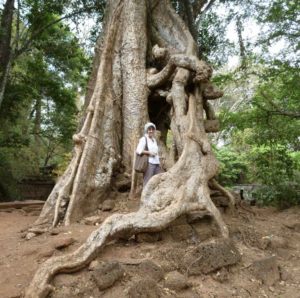 Lisa Raphals (瑞麗) studies the cultures of early China and Classical Greece, with interests in comparative philosophy, history of science, and occasionally science fiction studies. She is Professor and Chair, Program in Classical Studies, University of California, Riverside, and Chair of the Program in Comparative Ancient Civilizations. She is the author of Knowing Words: Wisdom and Cunning in the Classical Traditions of China and Greece (Cornell, 1992), Sharing the Light: Representations of Women and Virtue in Early China (SUNY, 1998), and Divination and Prediction in Early China and Ancient Greece (Cambridge, 2013); co-editor of Old Society, New Belief: Religious transformation of China and Rome, ca. 1st-6th Centuries (Oxford, 2017), and author of many shorter studies.
Lisa Raphals (瑞麗) studies the cultures of early China and Classical Greece, with interests in comparative philosophy, history of science, and occasionally science fiction studies. She is Professor and Chair, Program in Classical Studies, University of California, Riverside, and Chair of the Program in Comparative Ancient Civilizations. She is the author of Knowing Words: Wisdom and Cunning in the Classical Traditions of China and Greece (Cornell, 1992), Sharing the Light: Representations of Women and Virtue in Early China (SUNY, 1998), and Divination and Prediction in Early China and Ancient Greece (Cambridge, 2013); co-editor of Old Society, New Belief: Religious transformation of China and Rome, ca. 1st-6th Centuries (Oxford, 2017), and author of many shorter studies.
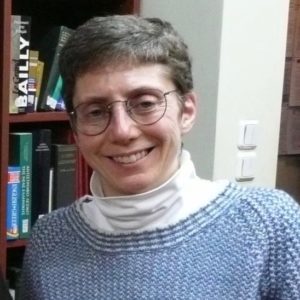 Julia L. Shear works on Athenian social and culture history. She uses both historical evidence and evidence from material culture and epigraphy to provide a holistic picture of ancient Athens and she also applies theories and approaches developed in the social sciences to the ancient Greek material. She received her Ph.D. degree from the Graduate Group in Art and Archaeology of the Mediterranean World at the University of Pennsylvania. Subsequently, she held a post-doctoral position as the University of Cambridge which led to her first book, Polis and Revolution: Responding to Oligarchy in Classical Athens (Cambridge, 2011). A series of articles and her current book project on creating collective memory in classical Athens have developed out of this monograph. Another strand of her research focuses on Greek religion, on which she is written a number of articles, as well as her forthcoming book, Serving Athena: The Festival of the Panathenaia and the Construction of Athenian Identities (Cambridge, forthcoming 2021). She has also taught at the University of Glasgow and at Boğaziçi University in Istanbul. She has been a frequent member of the American School of Classical Studies at Athens, both as a student and a senior member, and she has held three fellowships there. Her NEH fellowship at the School in 2019-2020 allowed her to start her new book project on Athenian collective memory. At the CHS, she will be focusing on this project and especially on comparative material from other periods and places.
Julia L. Shear works on Athenian social and culture history. She uses both historical evidence and evidence from material culture and epigraphy to provide a holistic picture of ancient Athens and she also applies theories and approaches developed in the social sciences to the ancient Greek material. She received her Ph.D. degree from the Graduate Group in Art and Archaeology of the Mediterranean World at the University of Pennsylvania. Subsequently, she held a post-doctoral position as the University of Cambridge which led to her first book, Polis and Revolution: Responding to Oligarchy in Classical Athens (Cambridge, 2011). A series of articles and her current book project on creating collective memory in classical Athens have developed out of this monograph. Another strand of her research focuses on Greek religion, on which she is written a number of articles, as well as her forthcoming book, Serving Athena: The Festival of the Panathenaia and the Construction of Athenian Identities (Cambridge, forthcoming 2021). She has also taught at the University of Glasgow and at Boğaziçi University in Istanbul. She has been a frequent member of the American School of Classical Studies at Athens, both as a student and a senior member, and she has held three fellowships there. Her NEH fellowship at the School in 2019-2020 allowed her to start her new book project on Athenian collective memory. At the CHS, she will be focusing on this project and especially on comparative material from other periods and places.
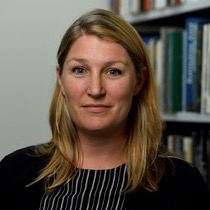 Jennifer Stager specializes in the art and architecture of the ancient Mediterranean and its afterlives. She received her PhD in the History of Art from the University of California, Berkeley and her MSt. in Classical Archaeology from Lincoln College, Oxford. Her areas of focus include theories of color, materiality, and vision in the ancient Mediterranean world, the afterlives of antiquity, and the intersections of gender, race, and class in the production and study of art and architecture. Stager’s first book, Seeing Ancient Mediterranean Color (in progress), investigates the role of color in shaping the art of the ancient Mediterranean from the 6th-3rd centuries BCE.
Jennifer Stager specializes in the art and architecture of the ancient Mediterranean and its afterlives. She received her PhD in the History of Art from the University of California, Berkeley and her MSt. in Classical Archaeology from Lincoln College, Oxford. Her areas of focus include theories of color, materiality, and vision in the ancient Mediterranean world, the afterlives of antiquity, and the intersections of gender, race, and class in the production and study of art and architecture. Stager’s first book, Seeing Ancient Mediterranean Color (in progress), investigates the role of color in shaping the art of the ancient Mediterranean from the 6th-3rd centuries BCE.
At the CHS, she will continue researching and writing her second book, Deliverance from Pain: The Visual Arts of Early Medicine. This book analyzes how a range of media worked in conjunction with texts to produce a story of western medicine that both proposed new practices and also built on the established visual cues of the religious cult of the healing god Asklepios. The project revises text-focused narratives of early medical history by analyzing tools, healing objects, and representations.
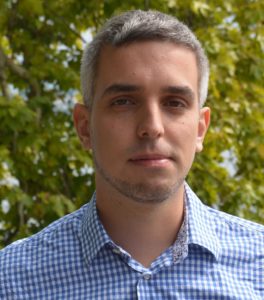 Máté Veres teaches ancient philosophy at Eötvös Loránd University, Budapest. He works mainly on Hellenistic philosophy, with a focus on epistemology and ethics. Having received his PhD from the Central European University in November 2016, he held post-doctoral fellowships at the University of Hamburg and at the University of Geneva. During his studies, he was a Fulbright scholar at Cornell University, and a visiting graduate student at the University of Cambridge. His recent publications include ‘Sextus Empiricus on Religious Dogmatism’, Oxford Studies in Ancient Philosophy 58 (2020), ‘Keep Calm and Carry On: Sextus Empiricus on the Origins of Pyrrhonism’, History of Philosophy and Logical Analysis 23 (2020), and ‘Theology, Innatism, and the Epicurean Self’, Ancient Philosophy 37 (2017). At the CHS, he will work on happiness and tranquillity in the Pyrrhonist tradition and on the notion of expertise in Hellenistic philosophy.
Máté Veres teaches ancient philosophy at Eötvös Loránd University, Budapest. He works mainly on Hellenistic philosophy, with a focus on epistemology and ethics. Having received his PhD from the Central European University in November 2016, he held post-doctoral fellowships at the University of Hamburg and at the University of Geneva. During his studies, he was a Fulbright scholar at Cornell University, and a visiting graduate student at the University of Cambridge. His recent publications include ‘Sextus Empiricus on Religious Dogmatism’, Oxford Studies in Ancient Philosophy 58 (2020), ‘Keep Calm and Carry On: Sextus Empiricus on the Origins of Pyrrhonism’, History of Philosophy and Logical Analysis 23 (2020), and ‘Theology, Innatism, and the Epicurean Self’, Ancient Philosophy 37 (2017). At the CHS, he will work on happiness and tranquillity in the Pyrrhonist tradition and on the notion of expertise in Hellenistic philosophy.
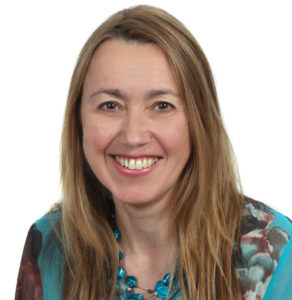 Alexandra Villing is an archaeologist and curator of the Greek collections at the British Museum. She holds an MPhil and DPhil from Oxford University. For the British Museum she has co-curated exhibitions on ‘Troy: Myth and Reality’ (2019/20) and ‘Fantastic Creatures’ (2011/12). Her research centers on the interaction between Greece and neighboring cultures in the first millennium. Many of her publications explore the role of material culture in social, cultural and religious practice and include collaborations with scientists, such as the edited volume Ceramics, Cuisine and Culture (2015). For the past ten years she has directed a major research and fieldwork project on the Egyptian-Greek trading port of Naukratis in Egypt, which among other publications has resulted in the online publication Naukratis: Greeks in Egypt (2013–). During her fellowship at the CHS she will work on a monograph on the history of Naukratis.
Alexandra Villing is an archaeologist and curator of the Greek collections at the British Museum. She holds an MPhil and DPhil from Oxford University. For the British Museum she has co-curated exhibitions on ‘Troy: Myth and Reality’ (2019/20) and ‘Fantastic Creatures’ (2011/12). Her research centers on the interaction between Greece and neighboring cultures in the first millennium. Many of her publications explore the role of material culture in social, cultural and religious practice and include collaborations with scientists, such as the edited volume Ceramics, Cuisine and Culture (2015). For the past ten years she has directed a major research and fieldwork project on the Egyptian-Greek trading port of Naukratis in Egypt, which among other publications has resulted in the online publication Naukratis: Greeks in Egypt (2013–). During her fellowship at the CHS she will work on a monograph on the history of Naukratis.
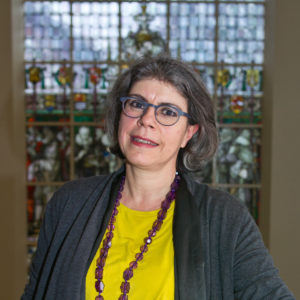
Sofia Voutsaki is Professor of Greek Archaeology at the Groningen Institute of Archaeology and Director of Studies of the Research Master Archaeology. Her research interests include Aegean prehistory, Classical archaeology, mortuary studies, bioarchaeology, archaeological theory, and the relevance of the past in the present. She has recently finished the excavation of the early Mycenaean North Cemetery at Ayios Vasileios, Laconia (the recently discovered Mycenaean palace) and the urban survey of the site and is now preparing the final publications with an international team of specialists. She is also working in the Classical – Hellenistic site of Halos in Thessaly.
